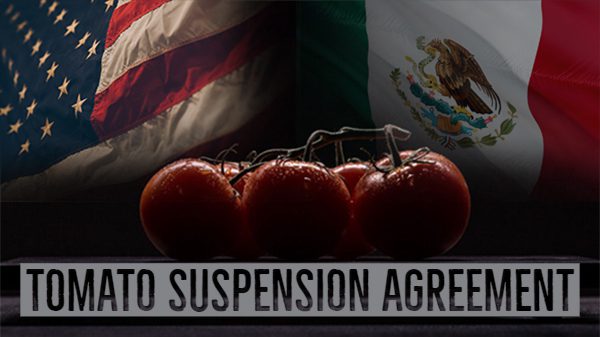It is not exactly news to the produce industry that Mexican exports of tomatoes have been on the increase. Export value has risen from $1.66 billion in 2014 to $2.48 billion in 2022.

Even so, it is striking to see the latest figures, which indicate that “Mexico exported tomatoes for a historical maximum of 2,477 million dollars in 2022 and for 1,086 million from January to April 2023, which means an increase of 25.9% compared to the first four months of 2022, according to data from the Department of Commerce,” according to the Mexican publication El Economista, citing figures from the U.S Department of Commerce. Exportaciones mexicanas de tomates a Estados Unidos anotan nuevo récord (eleconomista.com.mx)
The rise in imports has led to increasingly acrimonious exchanges between the Florida Tomato Exchange BB #:162441, which represents growers in the Southeastern U.S., principally Florida, and the Fresh Produce Association of the Americas BB #:144354, which represents U.S. importers and distributors of Mexican-grown produce.
On June 16, the FTE filed a request with the Department of Commerce to terminate the 2019 Tomato Suspension Agreement “because it has failed to stop unfairly traded Mexican tomatoes from destroying the U.S. tomato industry.” FTE: The Tomato Suspension Agreement must be terminated – Produce Blue Book
A summary of the Tomato Suspension Agreement can be found here.
FPAA counters: “The FTE has been making the same false claims for years but when pressed to present evidence in regulatory proceedings, they have failed to do so because their claims are untrue, nothing but propaganda intended to skew the political process to their advantage, regardless of the cost to consumers, retailers, and even other American farmers.” FPAA: Florida tomato suspension agreement claims “baseless” – Produce Blue Book
FPAA president Lance Jungmeyer stated the case more acridly: “The allegations by the Florida growers are as timeworn and tired as their gassed green tomatoes,” he said. “Consumers overwhelmingly prefer the flavor of vine ripened tomatoes over gassed green tomatoes like those from Florida. Mexico is a major supplier of vine ripened tomatoes, which is one reason why the FTE wants to erect a trade barrier. There really is no substitute for a vine ripened tomato, and to put in duties would simply amount to another tax that shoppers just can’t afford.”
No one can doubt that Mexican tomato exports to the U.S. are increasing (sharply so far this year). The FTE says these increases are due to unfair dumping practices. The FPAA (as Jungmeyer’s comment indicates) argues that the increases are the result of the higher quality of Mexican tomatoes and their greater appeal to the American consumer.
The dispute seems likely to continue indefinitely.
Editor’s note: A previous version of this article misstated who the FPAA represents.



